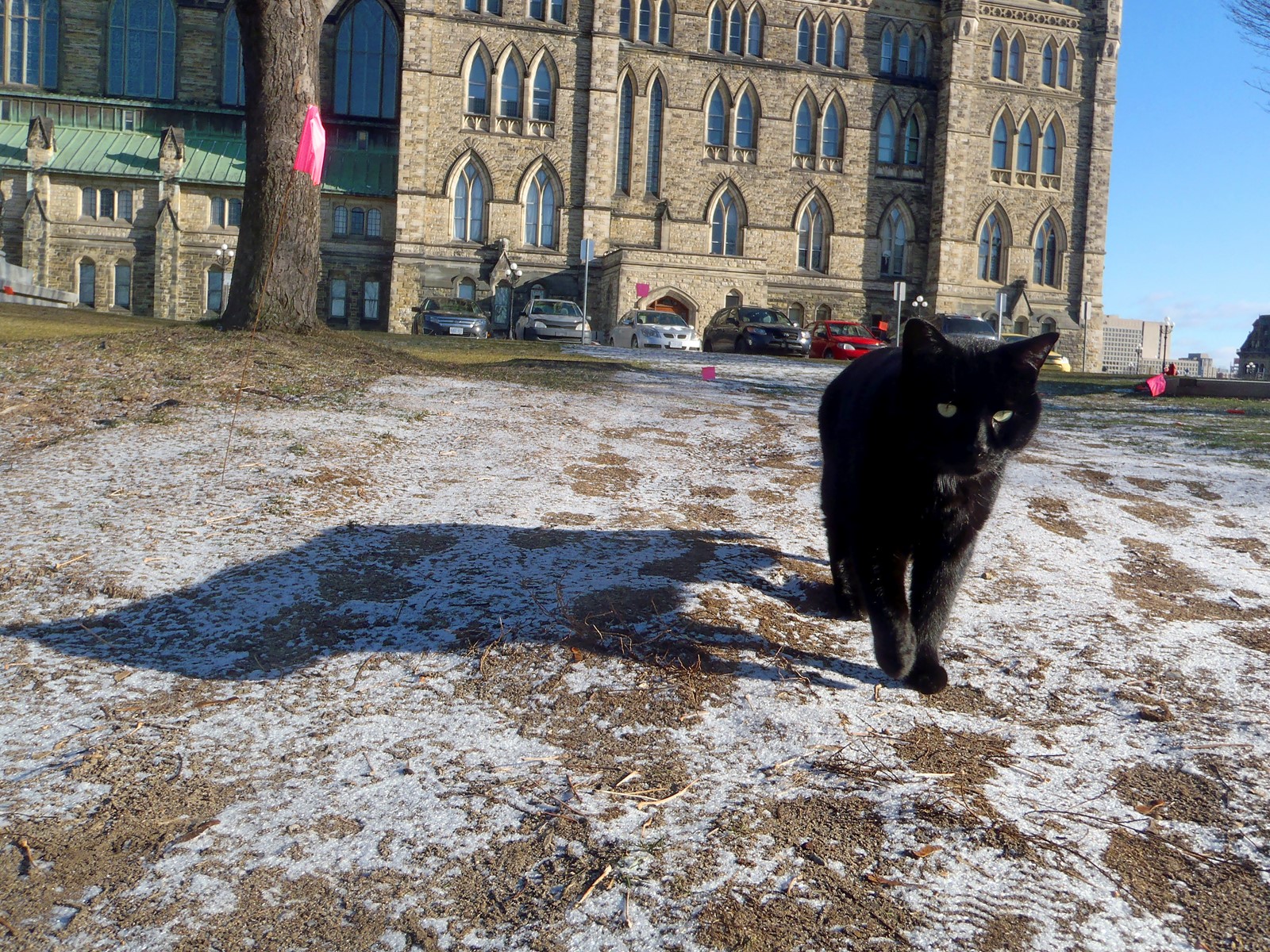
OTTAWA, Ontario — Coal, the last surviving member of a colony of cats that thrived for decades outside Canada’s Parliament and became popular with tourists, has died. He was believed to be 17.
A Facebook page devoted to Coal said he had had an aggressive form of cancer that had spread to his lungs and received a veterinarian-administered death Tuesday.
Little is known about Coal’s early life. But Danny Taurozzi, Coal’s adoptive owner, said it appeared he had been left at the informal colony as a kitten. There, Coal joined as many as three dozen cats who lived in crude shelters vaguely resembling the neighboring Centre Block building of Parliament.
Taurozzi was among a small group of volunteers who cleaned and maintained the shelters, in untamed bush behind a wrought-iron fence, just steps from the speaker’s entrance to the House of Commons. When the cats were not sleeping, they would sometimes allow themselves to be petted, he said.
The colony, which was also frequented by raccoons looking for a free meal, gradually became almost as large an attraction as the rest of Parliament Hill, and a mandatory stop for busloads of tourists.
Taurozzi said that the Dalai Lama had been among the dignitaries who had paid a visit to the cats. Another visitor, he added, was Stephen Harper when he was Canada’s prime minister.
“He was a cat lover, and his wife was a mega cat lover,” Taurozzi said. “These cats are stress relievers, so they’d have a lot of visitors.”
Coal and the other members of the colony, however, never enjoyed the formal status of Larry, the cat now serving his sixth British prime minister at 10 Downing St.
Alan MacEachern, a professor at Western University in London, Ontario, who has done some research on the parliamentary cats, said that some cats were on official mousing duties inside the Parliament buildings during the late 19th and early 20th centuries.
But it appeared to be a very on-and-off relationship.
A news report about a small fire in Parliament in 1924 blamed mice for the blaze and suggested that the incident would have been prevented “if a recent order banishing cats from the buildings had not been put into effect.”
The order may have later been lifted. The Globe and Mail reported in 1936 that the cats’ “love making, unmelodious and raucous, echoed through the dignified halls of legislature.”
Twenty-eight years later, The Vancouver Sun said that the “lusty cats” Peregrine, Poppet and Tobermory had been removed from their home under a flight of steps on Parliament Hill and placed in a farm under the orders of the deputy minister of public works.
Mouse traps eventually put the cats out of work and out of the legislative buildings for good.


 PREVIOUS ARTICLE
PREVIOUS ARTICLE
